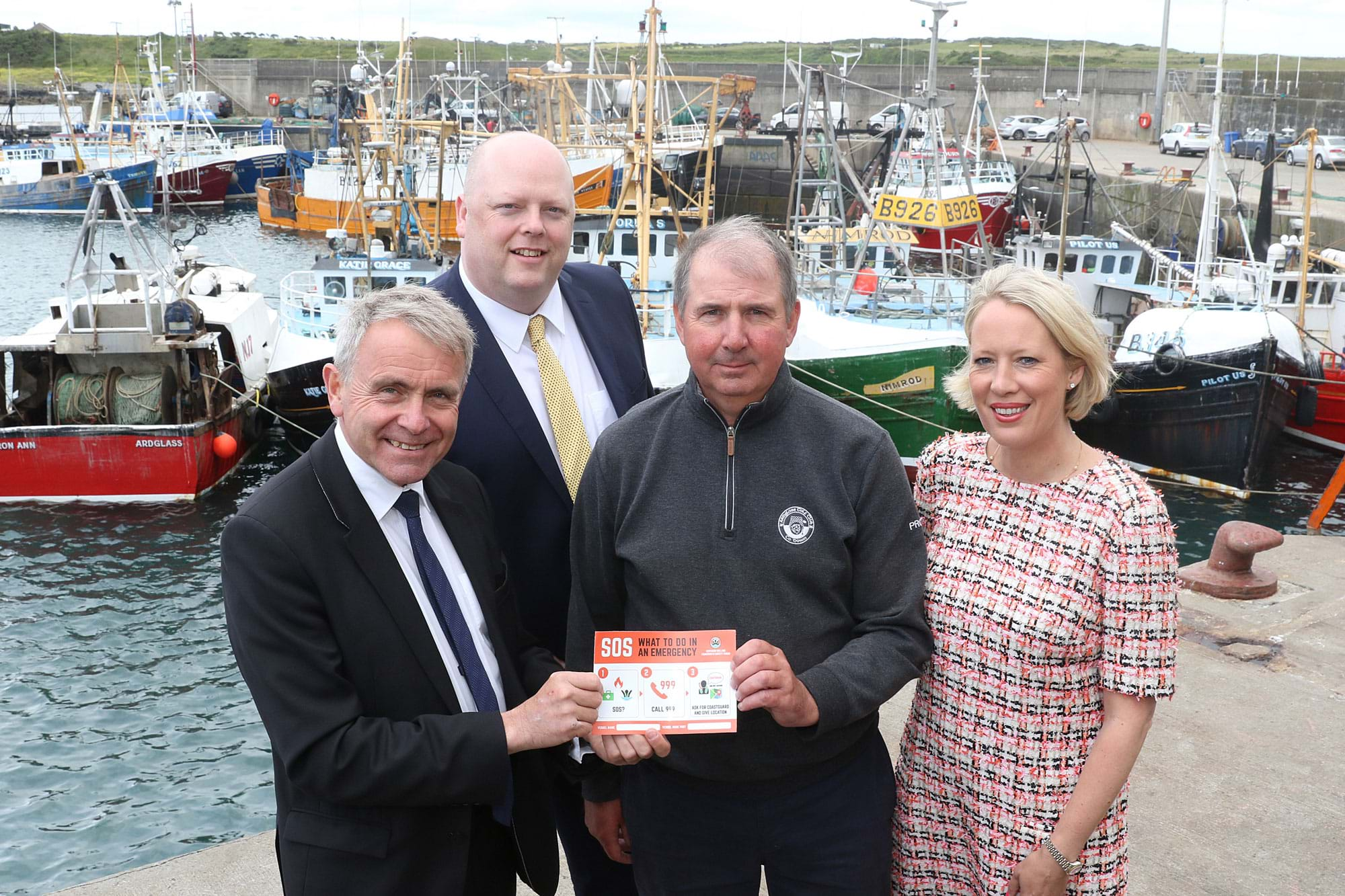A positive week for safety in the fishing industry

Keeping fishermen safe at sea has been an issue close to my heart for many years. Having worked closely with the fishing industry in Northern Ireland, I have seen the impact that accidents and deaths at sea can have on fishermen, their families and the local community.
In 2017, five fishermen in the UK lost their lives. To put this in to context, the rate of fatal injuries per 100,000 for commercial fishing is 62. The second most dangerous occupation, which is waste and recycling, has a rate of 10.62 per 100,000. In general the numbers of serious accidents and lost fishing vessels are decreasing but we are still a long way off the industry’s goal of zero preventable deaths at sea.
I am pleased that the Department for Transport have recognised the issue and put safety at sea on the agenda with Maritime Safety Week, which is now in its second year. Our CEO Marcus Coleman attended a roundtable on fishing safety this week where the Maritime Minister Nusrat Ghani announced £1m of Government funding will be spent on cutting deaths in the UK’s most dangerous industry.
When Maritime Safety Week kicked off on Monday, we were also delighted to host the Fisheries Minister Robert Goodwill in Northern Ireland. As part of his visit, I met him along with Harry Wick from the Northern Ireland Fish Producers Organisation and we had the opportunity to talk about the Northern Ireland Fishermen’s Safety Forum (NIFSF).
I worked with the fishing industry in Northern Ireland to set up the safety forum in February 2017 as a way to build on the good work started when we delivered over 1,500 lifejackets to fishermen. The aim of the forum is to develop further industry-led initiatives that address the most significant causes of fishing related deaths and accidents amongst the Northern Irish fleet.
The make-up of the fishing industry in the UK varies from region to region and we recognised that we could make a bigger impact if we listened to industry and focused on local needs and what should be prioritised. Since its inception, the safety forum has run safety events in local ports, given out rope ladders to help with man overboard recovery and stickers with a reminder to call 999 in emergency situations, which was launched this week with the Minister. More importantly the NIFSF has brought together every fishing organisation in NI with the Government bodies and charities to work in partnership to ‘make fishing safer together’- the mission of the group.
We have also helped to set up industry-led safety forums in Wales and SW England with great work going on there to give out much needed safety equipment and promote fishing safety. In Wales, the forum managed to secure funding from Welsh Government and Seafarers to provided discounted PFDs with PLBs (Personal Location Beacons) which have now gone out to over 90% of the Welsh fishing fleet. The hope is to set up fishing safety forums in other areas including SE England in the near future.
The Scottish Government announced a new Scottish fishing safety group recently which we are keen to be involved with but I think the power of our local groups is that they are led by fishermen and tackle local issues while aligning regional needs with national initiatives through the UK Fishing Industry Safety Group.
Fishing is a tough but rewarding job and we all benefit from the fantastic variety of fish and shellfish we get to eat regularly. Not only is it vital that skippers and vessel owners make safety on board a priority, it is also vital that the rest of us keep the issue on the agenda and give the fishing industry the support they need to be safe at sea.